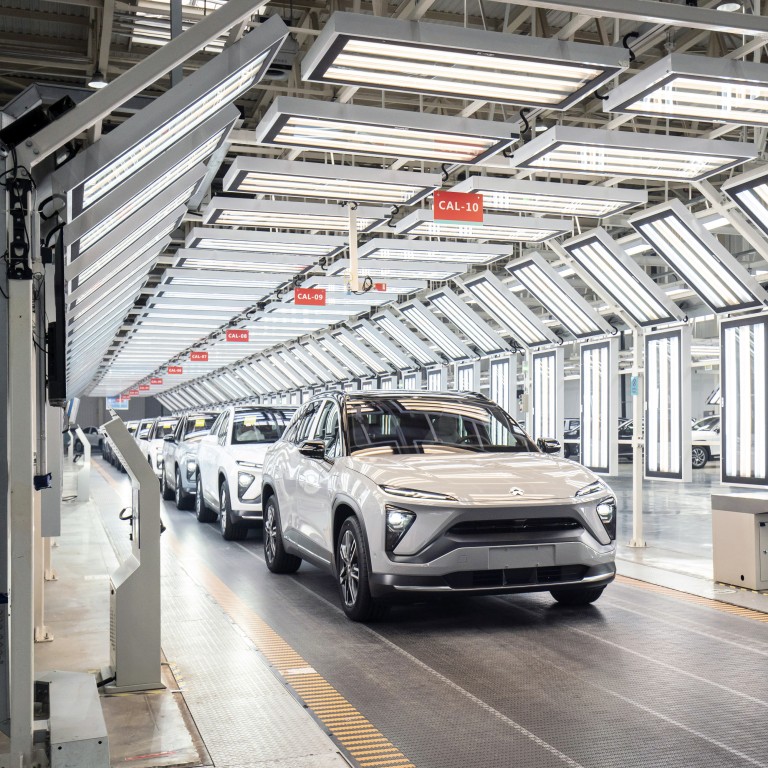
Chinese Tesla challenger NIO posts best quarter on record EV deliveries, helping narrow losses and crush analysts’ estimates
- The Shanghai-based carmaker’s first-quarter sales jumped more than fivefold to 7.98 billion yuan
- Net loss narrowed to 354.5 million yuan, or 0.23 yuan (4 US cents) per share, under Chinese accounting rules, beating the 16 US cents loss expected by analysts
The Shanghai-based carmaker’s first-quarter sales jumped more than fivefold to 7.98 billion yuan (US$1.23 billion), while its net loss narrowed to 354.5 million yuan, or 0.23 yuan per share, under Chinese accounting rules. That’s better than the loss of 16 US cents per share expected in a poll by Investors’ Business Daily.
Including a one-time loss of 4.4 billion yuan spent buying a 3.3 per cent stake from minority shareholders in its NIO China unit, the group’s loss widened to 4.88 billion yuan during the quarter, under general accounting rules, it said in a New York Stock Exchange filing.
“This will be the year for China’s leading smart electric vehicle companies to chalk up stellar gains,” said David Zhang, an analyst at North China University of Technology. “NIO and its Chinese counterparts are set to benefit from a rising penetration of electric cars although they are still lagging behind Tesla.”
NIO, along with Xpeng and Li Auto, are the most aggressive challengers to Tesla in China, but their sales make up only a small portion of the deliveries by the US carmaker, seen as the bellwether of the industry. Tesla delivered 35,478 electric cars from its Gigafactory 3 in Shanghai in March alone, more than double what its three Chinese rivals sold together.

“The overall demand for our products continues to be quite strong, but the supply chain is still facing significant challenges due to the semiconductor shortage,” William Li, NIO founder and chief executive, said in a statement. “In light of the strong momentum under a volatile macro environment, we expect to deliver 21,000 to 22,000 vehicles in the second quarter of 2021.”
NIO’s shares fell almost 5.3 per cent overnight to US$38.99 in New York. The stock has surged 11-fold in the past 12 months, giving the six-year-old carmaker US$63.8 billion in market value, more than Ford Motor’s capitalisation.
Earlier this month, Li told a press conference that NIO might lack the semiconductor stockpile to meet its target of assembling 7,500 electric cars in the second quarter.
Nio suspended production for five days at the end of March due to the lack of a US$1 chip. The carmaker expected to secure enough chips in the third quarter, Li said. Gross profit margin improved to 19.5 per cent from 17.2 per cent in the fourth quarter, NIO said.
UBS predicted that 6.6 million new electric vehicles would be sold on the mainland in 2025, nearly sixfold deliveries of 1.17 million units last year. Deliveries are expected to hit 18 million units, or 60 per cent of total new car sales, in 2030, it added.

